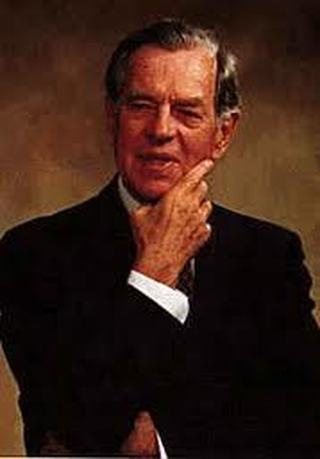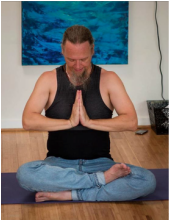
If you do know Campbell as a mythologist and the proponent of the 'monomyth', then that phrase is the least you know about Joe.
The idea of the monomyth was ground-breaking; looking at archetypes in mythology and realizing that across time and space and culture, we are all essentially mythologizing and telling the same series of events... this is commonly referred to as 'The Hero's Journey'.
Either you've heard of that concept, or you've simply enjoyed it... the same elements that pervade epic story-telling are components of the monomyth and the hero's journey.
From Luke Skywalker to Frodo Baggins to Harry Potter to Mr. Anderson (aka Neo), all of these archetypal heroes -- selected, reluctant, granted a boon or powers -- faced their adversary and then came home as a fulfilled being; often with magical aid, sidekicks and heroic tasks on the journey.
I would posit that the asana practice, the dedication of the Yogi to come back to the practice: to confront, face, release, change, surrender, understand - all of these are heroic acts. There is a sense of being called, often a reluctance, and then a seemingly transcendent or magical experience with continued self-realization, after which, there is a return to a renewed self.
While this is one of Campbell's most identifiable and most quoted aphorism, it is arguably most misunderstood sayings... I choose to use the analogy of the practice as a Hero's Journey, because he derived this idea from the Upanishads.
In his own words -
"Now, I came to this idea of bliss because in Sanskrit, which is the great spiritual language of the world, there are three terms that represent the brink, the jumping-off place to the ocean of transcendence: Sat-Chit-Ananda. The word "Sat" means being. "Chit" means consciousness. "Ananda" means bliss or rapture.
I thought, "I don't know whether my consciousness is proper consciousness or not; I don't know whether what I know of my being is my proper being or not; but I do know where my rapture is. So let me hang on to rapture, and that will bring me both my consciousness and my being." I think it worked."
Campbell began sharing this idea with students during his lectures in the 1970s. By the time that The Power of Myth was aired in 1988, six months following Campbell's death, "Follow your bliss" was a philosophy that resonated deeply with the American public—both religious and secular.
During his final years, when he believed that some of the students had meant him to be encouraging hedonism, Campbell is reported to have grumbled, "I should have said, 'Follow your blisters.'"

He saw this not merely as a mantra, but as a helpful guide to the individual, along their own Hero's Journey, that each of us walks through life:
"If you follow your bliss, you put yourself on a kind of track that has been there all the while, waiting for you, and the life that you ought to be living is the one you are living. Wherever you are—if you are following your bliss, you are enjoying that refreshment, that life within you, all the time."
So, indeed, follow your bliss, but don't expect that to be blissful! It's work - one interpretation of dharma is 'duty,' 'propriety' or 'calling'... we may be called to a duty that is difficult, but is our own - and, if we can, we must!
Within in this may lie bliss, if we see the journey as heroic - knowing the Hero is the protector and servant. Give thanks and praise!



